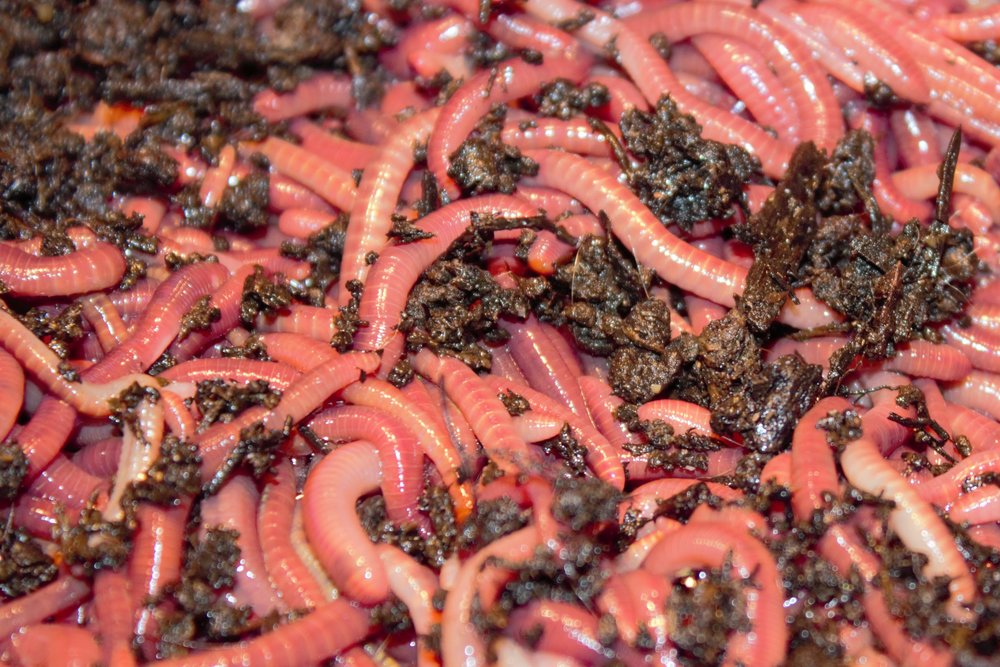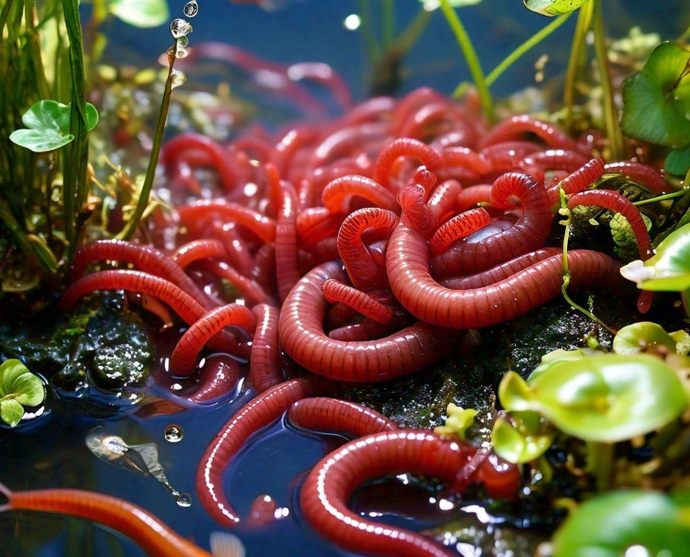Why Red Wigglers Are Vital for Chemical-free Farming
Red wigglers play an essential duty in organic farming, primarily with their unique capability to break down natural products and boost soil health. The level of their influence on farming practices and soil biology elevates interesting questions concerning the future of natural farming.
Function of Red Wigglers in Soil Health

Furthermore, red wigglers boost dirt structure by producing networks as they tunnel. These networks enhance aeration and water infiltration, promoting a healthier origin atmosphere. Their activity additionally helps in keeping ideal moisture levels, which is crucial for healthy plant growth.

Advantages of Worm Castings
Worm castings, the nutrient-rich waste matter produced by red wigglers, work as an effective amendment for chemical-free farming. These spreadings are loaded with necessary nutrients such as nitrogen, phosphorus, and potassium, which are essential for plant development. Unlike synthetic plant foods, worm castings launch nutrients slowly, supplying a constant supply over time and lowering the risk of nutrient leaching and drainage.
Furthermore, worm spreadings enhance dirt framework and aeration, advertising healthier origin systems. Their high raw material web content enhances wetness retention, allowing plants to better endure dry spell conditions. Additionally, worm spreadings have helpful microorganisms that support plant health by subduing pathogens and boosting nutrient uptake.
The application of worm castings can cause raised crop returns and enhanced top quality of produce, making them an invaluable source for natural farmers. Their use also lines up with sustainable farming methods, adding to soil fertility without the adverse ecological impacts linked with chemical fertilizers. Generally, the unification of worm castings into agricultural practices fosters an extra durable and efficient environment, highlighting the importance of red wigglers in chemical-free farming systems.

Enhancing Nutrient Cycling
(red worms for composting)Nutrition cycling is a critical process in natural farming, and the combination of red wigglers plays an essential function in boosting this cycle. These earthworms add significantly to the break down of natural matter, assisting in the improvement of complicated organic materials into less complex, more easily accessible nutrients for plants. As red wigglers take in rotting raw material, they eliminate nutrient-rich castings, which are brimming with advantageous microbes. This microbial activity further help in the disintegration process, making certain that vital nutrients are easily available for plant uptake.
Furthermore, red wigglers aid to increase the mineralization of nutrients, converting them from inert types right into bioavailable forms that plants can soak up. This process is crucial for preserving dirt fertility and promoting healthy crop growth. The existence of red wigglers additionally motivates a varied soil ecosystem, cultivating an equilibrium of nutrients that supports numerous plant varieties.
Improving Soil Structure
The enhancement of soil framework is vital for promoting a healthy farming ecosystem, and the task of red wigglers considerably adds to this renovation. These earthworms play a necessary function in freshening the soil and creating a network of networks that assist in water seepage and origin penetration. As they tunnel with the soil, red wigglers separate compressed layers, permitting much better oxygen exchange and promoting microbial activity.
In addition, the organic matter produced from their waste, called vermicast, improves soil aggregation. This process produces secure clumps of dirt bits, enhancing dirt porosity and lowering erosion (red wigglers). The existence of red wigglers likewise encourages the advancement of helpful fungal networks, which are vital for nutrient uptake by plants
Promoting Sustainable Practices
Incorporating red wigglers right into natural farming methods not only enhances dirt health but likewise advertises sustainable farming techniques. These earthworms play an important role in vitamins and mineral biking, changing organic waste into beneficial garden compost that improves the dirt. By making use of red wigglers, farmers can properly decrease dependence on artificial fertilizers, thus reducing chemical drainage and its destructive effects on ecological communities.
Additionally, the unification of red wigglers urges the method of reusing natural materials, such as cooking area scraps and ranch waste. This waste reduction technique not just lowers disposal prices however also fosters a closed-loop system where nutrients are constantly gone back to the soil (red wigglers). Such methods are crucial in alleviating environment adjustment, as they enhance carbon sequestration and lower greenhouse gas discharges
In addition, red wigglers improve water retention in the dirt, which is crucial in times of dry spell. Their burrowing activities develop networks that permit water to permeate much deeper into the ground, hence promoting efficient water usage. Ultimately, integrating red wigglers right into organic farming not red worms just sustains biodiversity however also aligns with the principles of lasting farming, providing an alternative approach to food manufacturing.
Verdict
Finally, red wigglers play a vital role in chemical-free farming by significantly boosting soil wellness and fertility. Their capacity to decay natural matter and generate nutrient-rich castings promotes a growing microbial community, which is essential for vitamins and mineral cycling. Additionally, the delving activities of these worms boost soil structure and aeration, assisting in better water infiltration and origin development. Thus, the assimilation of red wigglers right into agricultural techniques is vital for advertising sustainability and improving total dirt top quality.